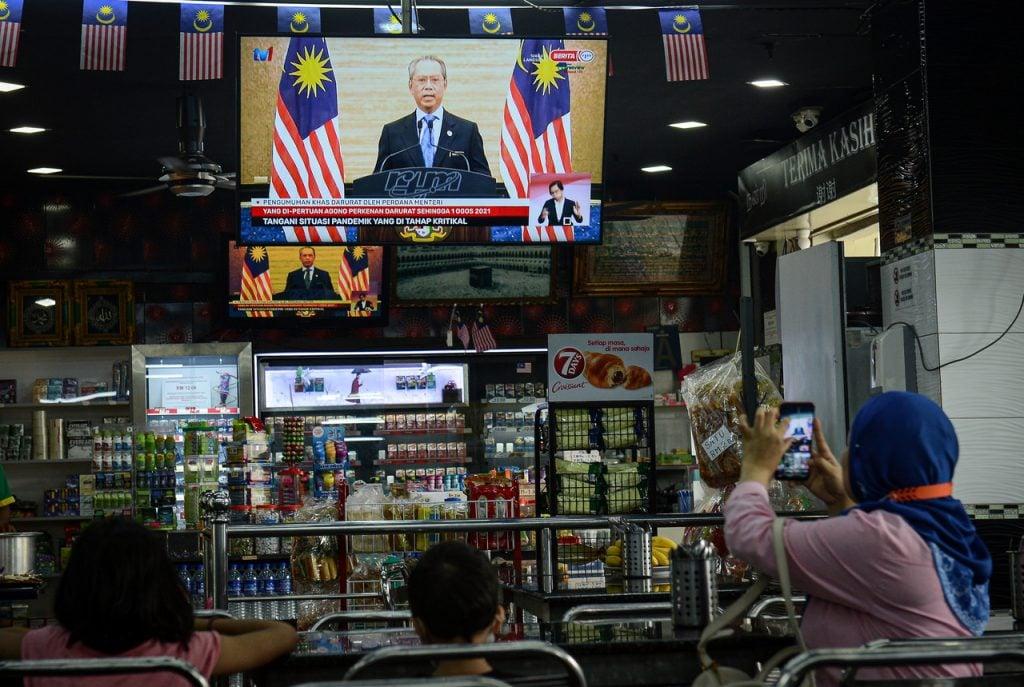Will heavy fines for SOP violators affect Muhyiddin at polls?
Analysts say the heavier punishments for those who violate health SOPs will likely be included in the opposition's campaign for the next general election.
Just In
Analysts have played down the political impact of the stricter laws introduced by the Perikatan Nasional (PN) government in the battle against Covid-19, even as the opposition steps up criticism over recent moves to impose heftier fines on those who breach health SOPs.
Universiti Kebangsaan Malaysia’s Kartini Aboo Talib in fact believes the heavier fines are needed to ensure the success of the government’s war against the pandemic – the reason given by Prime Minister Muhyiddin Yassin when he announced the virus emergency earlier this year.
This comes as politicians including Najib Razak and Anwar Ibrahim, two of the most vocal critics of the PN government, take to social media to decry a series of fines slapped on those who violate SOPs, including the newly revised compound of RM10,000.
Kartini said there was nothing wrong with ensuring that those who do not comply with the SOPs are heavily dealt with.
“If we obey and abide by the SOP directives, why should we be afraid? Those who comply can move on to a new normal that is becoming common,” Kartini said.
The RM10,000 compound, a ten-fold increase from the previous maximum of RM1,000, came into effect on March 11 under the Emergency (Prevention and Control of Infectious Diseases) (Amendment) Ordinance 2021.
The new law also warns those convicted of a maximum RM100,000 fine, jail of not more than three years, or both.
“If we obey and abide by the SOP directives, why should we be afraid?”
Within 24 hours, a total of 330 people were issued compound notices of RM10,000 for various violations of SOPs under the movement control order (MCO).
The offences included failing to register upon entering business premises and not wearing the compulsory face masks in crowded places.
Last month, announcing details of the virus emergency, Muhyiddin warned that the government could come up with stiff laws to ensure the public’s compliance and cooperation in the war against Covid-19, which has so far taken more than 1,200 lives in Malaysia.
Similar laws have already been put in place in neighbouring Singapore, which experienced a spike in cases last year which was then brought under control.
Its Covid-19 (Temporary Measures) (Control Order) Regulations 2020 stipulates, among others, a fine of up to S$10,000 (RM30,500) or a six-month jail term for first-time offenders.
Pollster Hisommudin Bakar expressed reservations over the claim that the government is being heavy-handed.
He said such laws are crucial at a time when various parts of the country, including the industrial and education sectors, are on their way back to normal.
“Malaysians must comply, and one way of educating the public is to impose fines or punishments, in addition to holding awareness campaigns.”
Meanwhile, Universiti Putra Malaysia academic Mohd Mahadee Ismail said the hefty compounds are likely to become part of the opposition’s campaign in the impending general election.
He said it would be easy to make it into an issue by saying that the laws were not subjected to parliamentary debates.
Hisommudin said it is important for authorities to explain to the public the need for such laws, based on factual arguments.
“If the government fails to address the issue with a counter-narrative, it will to some extent influence certain segments of voters into casting protest votes.”
Subscribe to our newsletter
To be updated with all the latest news and analyses daily.
